"The remedy for all the disorder in the health sector is insurance reform"

We use Google Cloud Translation Services. Google requires we provide the following disclaimer relating to use of this service:
This service may contain translations powered by Google. Google disclaims all warranties related to the translations, expressed or implied, including any warranties of accuracy, reliability, and any implied warranties of merchantability, fitness for a particular purpose, and noninfringement.

Highlights
- "Based on my experience, I said that I will remove the line at the hospital within a month, but the line is not going away, it is only decreasing."
- "As many hospitals as have been built, the first priority is to fully provide the required manpower and equipment."



Congress leader Pradeep Paudel, who questioned the government on the issues of roads and society, is now in a position to answer himself. As he used to question the power when he was outside, what is he doing after coming to power? Paudel, who has taken over the leadership of the Ministry of Health and Population, which is connected to the health of the common citizens, is considering a new health insurance plan as the only option to end all the problems seen in the health sector.

He has made the government's goal to announce within 100 days, he is also doing his homework on the plan to decentralize the centralized health service, from reducing the queue of patients in the hospital. Minister Paudel, who is one of the few expected faces in the current cabinet Edited by Acharya in the form of and by Acharya
Kulchandra Neupane of Kantipur about what plans and programs he has to address the expectations of the common people Excerpt :
Yesterday you were in the place of questioning, now you have come to the place of answering. In the experience of being a minister for about 40 days, do you think it will be done as you thought yesterday, or is it difficult?
is different from what it looks like from the outside, there are some limits. There is a situation where the internal management has to work a little more slowly. Now the content of the ministry is much understood. The work of taking opinion suggestions has been carried out with speed. Some beginnings have also been made. I have been doing some improvement homework.

If I had become a minister, I would have done this. On his first day as a minister, he announced that he would end the line from all government hospitals within 30 days. Is it possible that if there is no work according to the announcement, it will be as expected?
is neither a state of absolute emptiness nor a state of completeness. The health sector is in a state of not being able to manage, not being able to increase efficiency, not being able to give full benefits. Before becoming a minister, there was an experience when he went to Kanti Hospital to treat his daughter. Anyantra was taken to a government hospital. Based on what I experienced when I went there, I said that I will remove the hospital line within a month on the day I became a minister. What I 'realize' is that the line is not going away, it's just going down. Therefore, efforts to reduce the line are still ongoing. Results will be visible in no time. Much work remains to be done in terms of managing, combining, prioritizing, providing effective health services to the citizens, coordinating at the level (local, state and union) and structurally, to maximize the use of available resources. This is where the
is being attempted. Infrastructure cannot be changed overnight. It will not happen immediately that the number of MBBS in the workforce will be doubled at once. Amidst resource constraints, the equipment is not fully available. Therefore, our homework is going on how to provide maximum effective health services within the available manpower and infrastructure. If the treatment takes place from 9 to 4 o'clock, arrangements will be made to bring 9 earlier and 4 later. If the treatment period can be increased, the current line will be reduced. Taking the management and payment system online, it is necessary to publish the daily schedule to fully utilize the capacity.
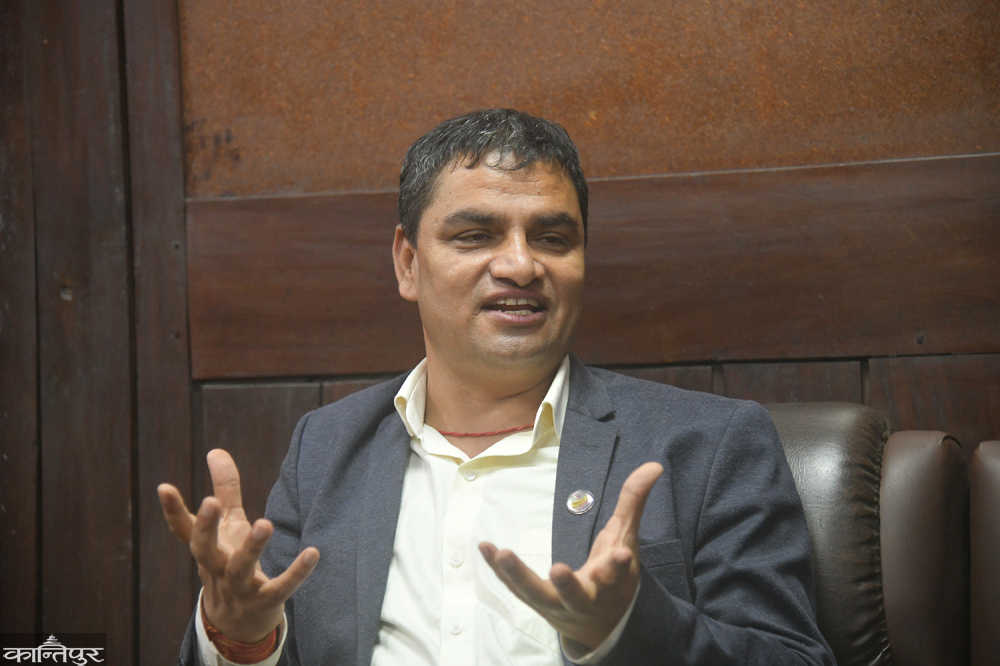 What are the main challenges to work as you think in the Ministry of Health?
What are the main challenges to work as you think in the Ministry of Health?
In a field like health, the budget is only 4 percent, it is not confirmed that the state prioritizes health. Health should have been given priority considering that it is a sensitive area connected with all citizens. Investment is not according to our needs. Comparing the investment and the requirement, it is not in a position to reach around 40 percent. Effective work could not be done due to very poor investment.
Health Minister Pradeep Paudel . Photos: Deepak KC/Kantipur
Even the available resources have not been utilized to the maximum. If you look at the physical structure, sometimes the foundation is dug, sometimes one floor, sometimes two floors are sloped. There was no need for equipment and necessary manpower in an incomplete physical structure. It is necessary to build a health structure with complete physical structure, manpower and equipment.
Veer Hospital, which has the most manpower, is not perfect. Nothing happened at Seti and Mechi Hospital. Therefore, as many hospitals as have been built, the first priority is to provide them with the necessary manpower and equipment. Primary health posts are our primary health centers. After that, the basic hospital is the second, the provincial hospital is the third and the federal hospital is the fourth health center. Therefore, according to the condition of the patient, it is necessary to go to the basic, then to the primary, and then to the state and the union. However, now the position of going directly to the union seems very crowded. The referring system should be determined by the health center according to the patient's condition. Now it is not about how many beds the hospital has, but about the service provided by the hospital. Hospitals should be classified based on services. The
ties in with another challenge, not being sick. In terms of awareness, no work has been done in all three levels of hospitals. It is necessary to bring policy clarity to prevent disease and prepare a healthy generation. The ministry looks not only at health, but also at the population level. What is the situation of our population and migration, which age group is more in the population, how can it get employment, how can that age group contribute to nation building, how can employment be created according to the demographic situation, we have not started work. In terms of providing
services, coordination between the three levels of government is necessary. Like, now the union has built a hospital, the state will add another building to it. There are five hospitals within 8 km. There is no hospital even within 80 km. Therefore, arrangements for working in an integrated manner will have to be arranged. The constitution says basic health is free. According to that, it is not possible to serve the citizens 100%. Health policies were made, political parties wrote in their manifestos, we took decisions time and again. However, there has not been much achievement in providing specialized services to the people. Understanding this sensitivity and developing a performance system is the main challenge now.
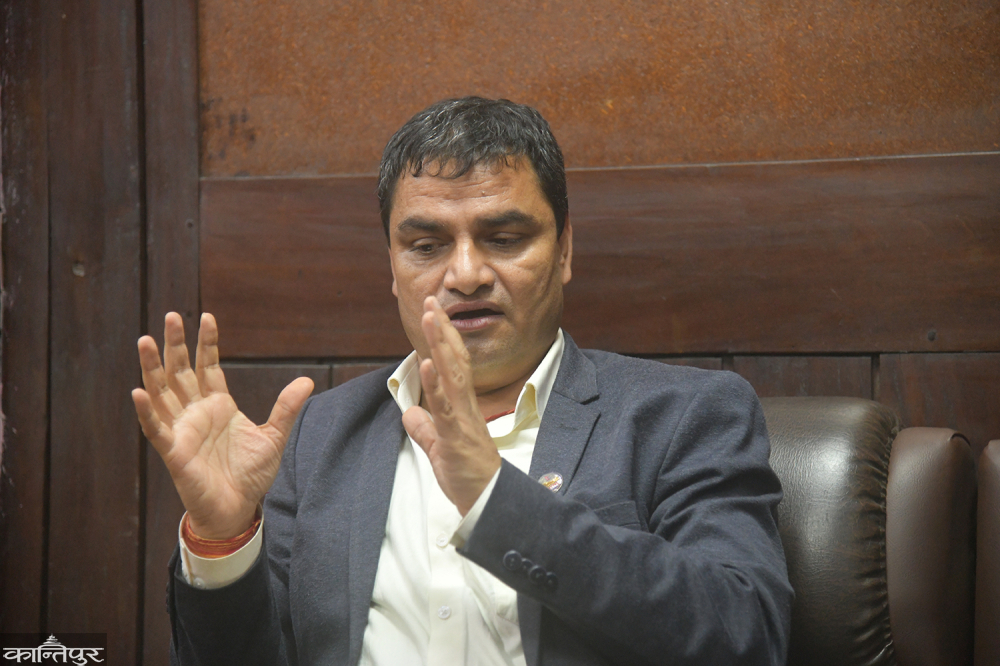 On the one hand, the situation of economic resources is getting worse, on the other hand, whatever manpower is being produced, they are also leaving the country. There is no priority of the Ministry of Health to prevent this?
On the one hand, the situation of economic resources is getting worse, on the other hand, whatever manpower is being produced, they are also leaving the country. There is no priority of the Ministry of Health to prevent this?
There is a lack of medical manpower to meet our needs. As much as is available, it is also concentrated in urban areas. The most qualified community is the physician. This end can also be easily sold in the community market. At the latest stage, the production of MBBS, MDMS, Nursing is decreasing. The demand for doctors working in the government sector is high in the market. There is a lot of income from the market, but the government has not been able to provide service facilities accordingly. The process of manpower production should be increased. Like
, MBBS, MDMS studies should be started in a hospital with 300 beds. B.Sc nursing should be started in 100 and 200 bed hospitals. Similarly, the hospital providing specialized treatment should start studying MDMS related to it. If we are not able to increase manpower production and the situation of migration continues, we will have to face a very big challenge. Our homework is being done in this direction as well.
As you mentioned, there are also many legal obstacles to go ahead with such plans to produce manpower. What are you doing to solve it?
is not particularly difficult legally. Laws can be made based on how many beds there are. But the difficulty lies in the source. In MBBS, there is a provision to study on 75 percent scholarship. This means bringing and investing from the state fund. The state does not have the ability to invest in all the hospitals with the same percentage of scholarships.
You are trying to change the insurance policy to make it easier for people, where did that homework go?
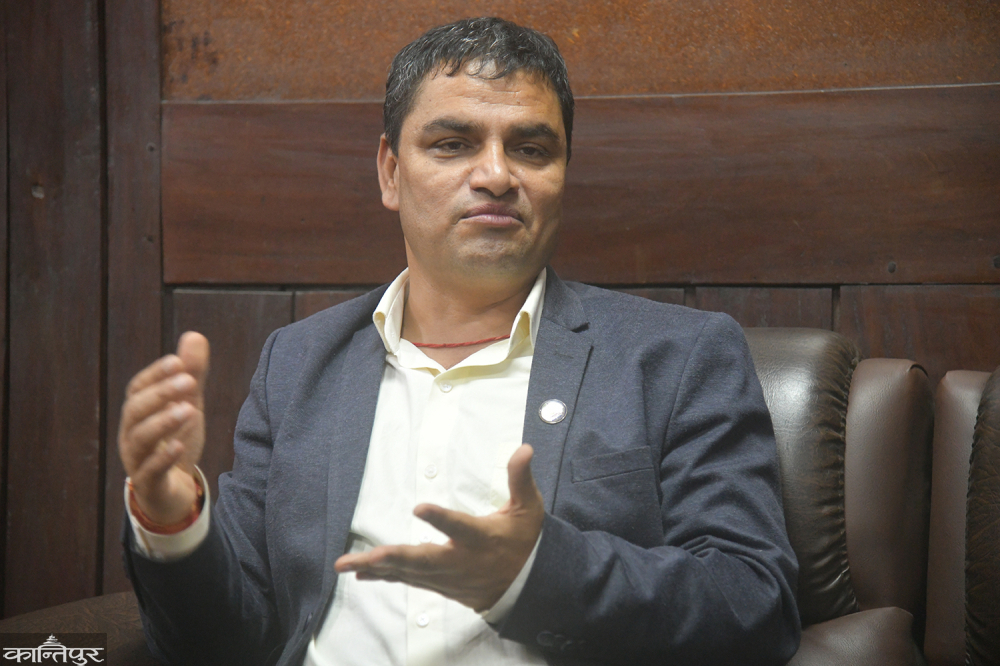 Now the Ministry of Health is preparing to form a committee on how to run the federal hospital in an orderly manner and work based on the report it will give. How to raise resources. Like: You have to wait in line for 8 months to get an operation in a government hospital. How to create a situation where everyone can be operated within one-and-a-half months, how can the operation be done by 8 pm, we are engaged in homework. Since the manpower cannot be retained, there is no option but to work with the existing ones.
Now the Ministry of Health is preparing to form a committee on how to run the federal hospital in an orderly manner and work based on the report it will give. How to raise resources. Like: You have to wait in line for 8 months to get an operation in a government hospital. How to create a situation where everyone can be operated within one-and-a-half months, how can the operation be done by 8 pm, we are engaged in homework. Since the manpower cannot be retained, there is no option but to work with the existing ones.
Ministry is trying to increase the service by giving more incentives. There is a plan to not let hospital beds and operation theater beds go empty while being sick. We have tried to increase the shift by reducing the electricity tariff in the federal hospital by half. We have developed cancer treatment mechanisms in all the seven provinces. Heart treatment and human organ transplants are being made from all seven provinces.
The Medical Council is conducting training to prepare skilled manpower for that. We are adjusting prices in the field of medicines. An adjustment plan has been put forward to reduce the price of expensive drugs and increase the price of cheap drugs that cannot even cover the cost of production. Our plan is not to increase the price of essential medicines and to reduce the prices that are too high.
and insurance policy homework?
Now there is insurance up to 1 lakh rupees. If it persists, it will collapse. 9 billion will have to be paid for free insurance. It is increasing every year. Above a certain age, disability and children have been declared free insurance. The government is not able to pay for it. Many hospitals are yet to pay the insurance amount.
This is the weakness of the government, right?
is the government's weakness. The government pays what it has to pay. However, every year this liability increases. Due to the disorganization of insurance, citizens have not been able to get services and facilities effectively. It needs modification. Right now we are not about management, we are focusing on resource mobilization. Management cannot be done if resources cannot be ensured. What is going on now, insurance is not going according to principle.
Do you want to say weakness in its policy?
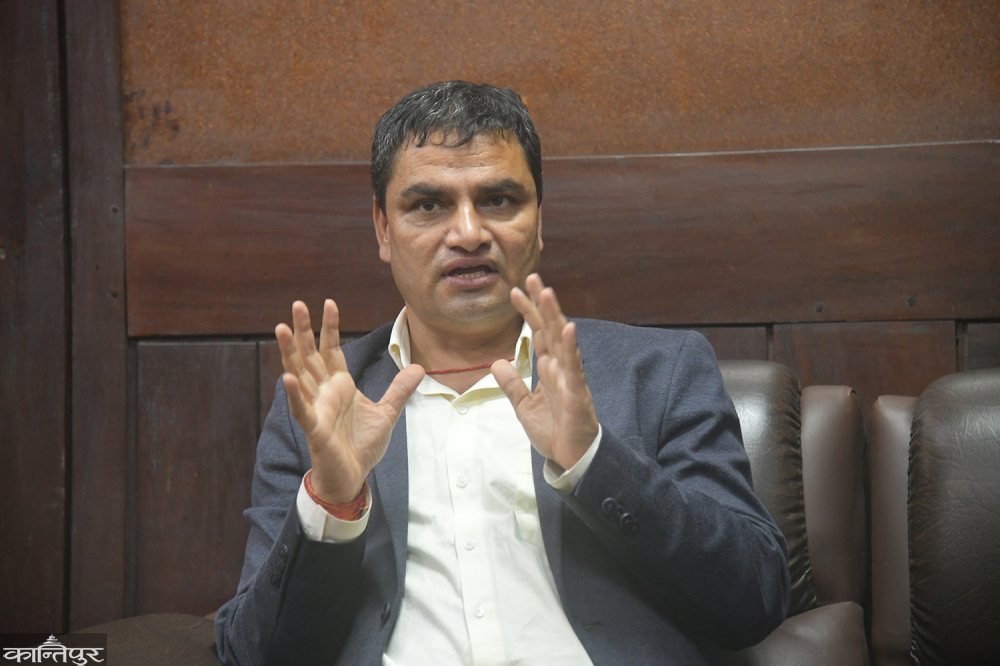 We had to either insure only healthy citizens, or insure 100 people and treat 10 people. No, if it is insurance under social security, there is no option to manage it by ensuring its source. We have advanced the basis of source assurance. For example, continuing the seven and a half billion given by the government annually, bringing the facilities that are scattered under different titles under social security in an integrated manner, the subsidy given to the eight non-communicable diseases, the facilities provided by the state under the mother protection program, the facilities that the poor citizens get can all be covered by insurance. Only this will add 19/20 billion.
We had to either insure only healthy citizens, or insure 100 people and treat 10 people. No, if it is insurance under social security, there is no option to manage it by ensuring its source. We have advanced the basis of source assurance. For example, continuing the seven and a half billion given by the government annually, bringing the facilities that are scattered under different titles under social security in an integrated manner, the subsidy given to the eight non-communicable diseases, the facilities provided by the state under the mother protection program, the facilities that the poor citizens get can all be covered by insurance. Only this will add 19/20 billion.
If the amount spent by provinces and localities in the health sector is brought together, more than 25 billion can be raised. Insurance coverage for national servants, civil servants, security agencies under the military, police, organized and informal non-governmental sectors can also be added. By doing this, resources of around 35 billion are ensured.
50 percent of the health tax fund can be added to the insurance by imposing a sugar tax on the production of sugar products in excess of the requirement. Additional funds can be collected by allocating 0.05 percent of the tax received by the state and providing up to ten percent co-payment. If we can collect all these resources and give five lakh insurance to citizens, there is no one who will not join it. If all citizens are treated by insurance, the resources will contribute even more.
has said that the scope of insurance will be increased to five lakhs. Is it only for patients with eight non-communicable diseases who are receiving benefits from the state?
is a plan to provide minimum five lakh insurance for common citizens. If we provide insurance facility of five lakhs, a healthy person will not spend five lakhs. A 'ceiling' of one lakh and below fulfills the need for treatment. In case of non-communicable and chronic patients, more than five lakhs can be given. Like, the eight currently providing facilities can be increased to 11 diseases. In that, we have to give more than five lakh facilities. Due to this, the number of insured also increases. At present, 1.6 million households have renewed their insurance. If the insurance is organized by ensuring the source, not only 16 lakhs will be insured. The amount received from insurance premiums increases the resource. The cure for all health woes is insurance reform.
There is no concrete reason behind the amount of money that is being distributed under social health security. Is it possible to remove all this and cover it in insurance?
Every day 10-12 people come to the Ministry of Health to seek help for treatment. Their experience is very pathetic and painful. If a family member is sick and needs a kidney transplant, chemotherapy or heart surgery, it affects the whole family.
When Nepali citizens spend 100 rupees on healthcare, the government only gets 43 rupees. The remaining Rs 57 is going out of the individual's pocket. If this situation continues, according to government data, 5 lakh Nepali people are going below the poverty line. Therefore, if the presence of the state cannot be shown in health, this system is unpopular. There is also disinterest in politics and the people do not feel any work done by the state.
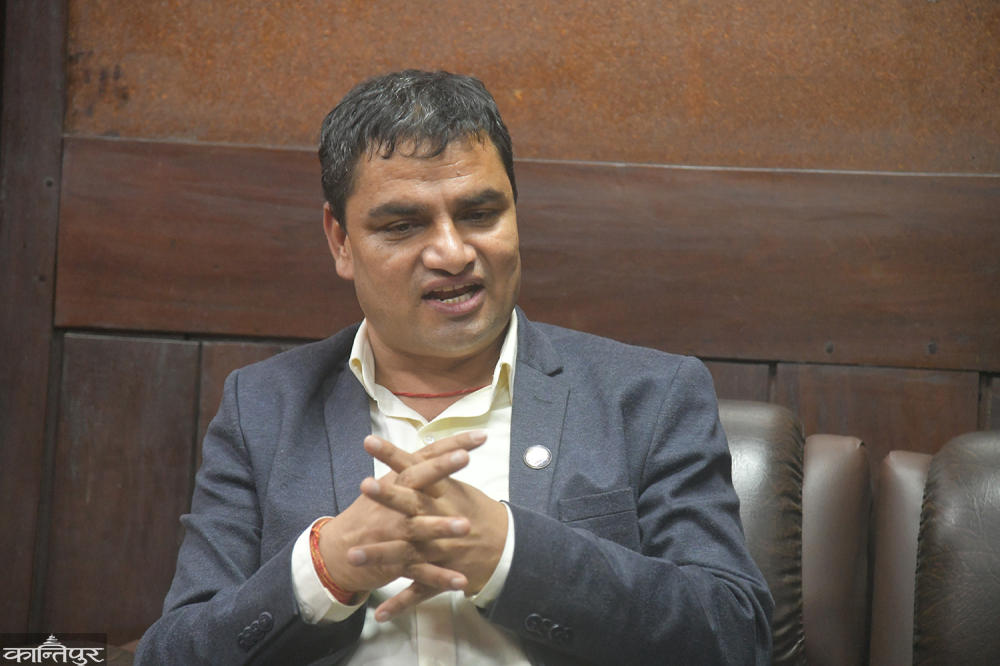 Can the announcement of random distribution of state funds without any solid study be withdrawn and put back on the right track?
Can the announcement of random distribution of state funds without any solid study be withdrawn and put back on the right track?
Those who are getting the facilities now, will not take away that. It will be organized. If possible, increase it. There is no other option for that except insurance. Now people don't believe that insurance gives them money. Due to lack of resources, we have not been able to pay insurance money to many hospitals. Now the question that everyone asks me is, 'One lakh is not manageable, how can we reach 5 lakh?' We have presented a list of how to reach. The government can use the social sector. Can receive support from diaspora and international donor partners. However, the first thing is that the source of the insurance fund had to be ensured and it had to increase. Arrangements had to be made to ensure resources above 60 billion. Then comes the implementation phase.
is now widely random. Many of the claims made by hospitals to the state for insurance are not entirely accurate. After ascertaining the source, various arrangements can be made at the implementation stage, so that no one can make false claims, submit false details. If we can create a situation where only the right people get the benefits, no one is deprived of the benefits, the hospital deals only through insurance, and if we can create a situation where citizens can get treatment services through insurance both in the government and private sector, then the health sector will be on an orderly path.
Depending on the manpower and technology that is being done in the Ministry of Health, can the objective you mentioned be achieved? When the insurance is going to be integrated, will the common people not get the facilities they are getting now?
In terms of insurance, the Ministry of Health is the only guardian. It is the responsibility of the Health Insurance Board to take all decisions and move forward. It is better to make the board itself autonomous and take it forward. However, since the Ministry of Health is a taluk ministry, it cannot shirk its responsibility. The ministry will make necessary monitoring and policies to keep all those arrangements in order.
Will the Prime Minister be ready to implement the plan you are promoting?
Prime Minister is also positive about this matter. It's not impossible either. A government organized sector is one under the government. It was not difficult to add it. Whatever the government is providing for healthcare facilities, that too belongs to the government. It is the government that raised the health tax fund, it is not difficult to say let's put half of the raised amount into insurance. The seven and a half billion rupees that the government is giving to insurance now also belongs to the government. Whatever the provinces and municipalities are spending on health, that too belongs to the government. So this is all a matter within the government, there is no difficulty in doing it.
Citizens' trust towards insurance has been shaken. A hospital is assigned to the insured. People live elsewhere. And is the insurance to go to a permanent address in case of illness okay?
We are not going to manage it. We started to change the insurance system itself. Therefore, to manage the current insurance system, the way of 'referring' should be changed. A person is living somewhere, it is not necessary to go to a permanent address after getting sick. Health care should be received where people are.
If the new insurance plan can be implemented, it will be arranged that the citizen will get the facility wherever he is. The current payment system is also managed. Then we also implement an 'electronic' record keeping system. So that no one takes double advantage.
Another problem seen in the Ministry of Health is seen in the purchase of health equipment. The more purchases, the more commissions. The infrastructure has not yet been built, the equipment procurement process has already progressed. What does your one month experience say? I don't think the
is as commented out. It is not that there is no truth in it. After I took over the responsibility of the ministry, people's representatives at various levels asked me to make the equipment available in the ministry. Now, during the floods, they have demanded various equipment from the municipal hospitals. We have also written to the Department of Health Services.
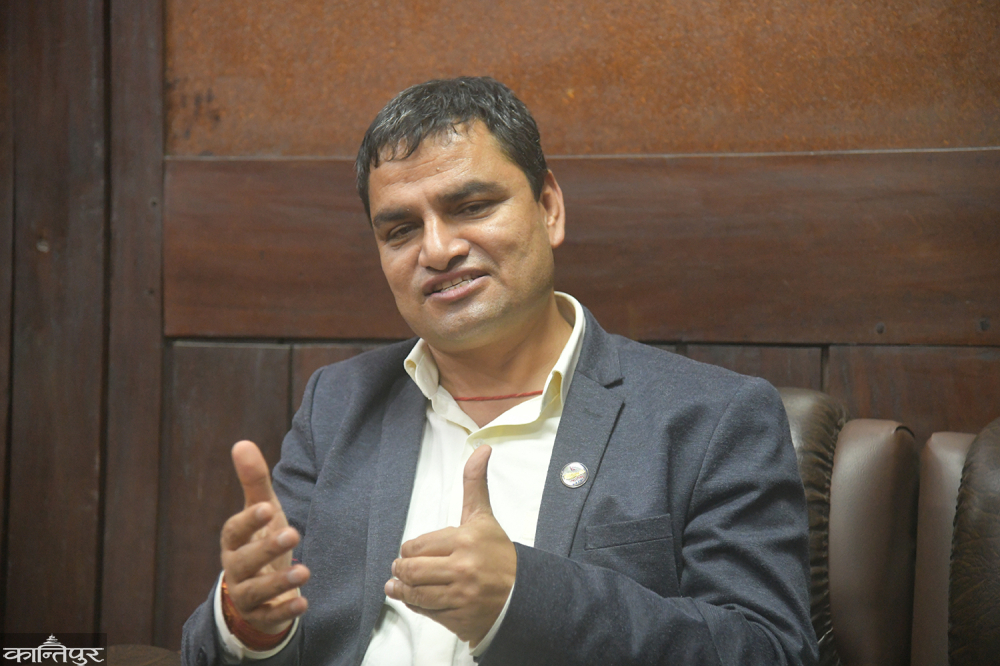 However, whether those materials are necessary or not, whether there is manpower to use them or not, those materials have been stored to such an extent that even if the materials that can be used are sitting unused in the ministry, we have formed a committee to account for them. It has been said that the Ministry of Health has the goods since the time of Covid. That doesn't seem to be the case. How many goods are really in what condition, whether they are usable or not. A committee chaired by Narayan Vikram Thapa looks into it. Based on the cost prepared by him, we arrange to send the goods to where they are needed.
However, whether those materials are necessary or not, whether there is manpower to use them or not, those materials have been stored to such an extent that even if the materials that can be used are sitting unused in the ministry, we have formed a committee to account for them. It has been said that the Ministry of Health has the goods since the time of Covid. That doesn't seem to be the case. How many goods are really in what condition, whether they are usable or not. A committee chaired by Narayan Vikram Thapa looks into it. Based on the cost prepared by him, we arrange to send the goods to where they are needed.
We have decided to provide dialysis facility in 77 district hospitals. How many dialysis do we have for that, how many are insufficient. We have tried to provide video x-ray facilities for pregnant women in all hospitals. We had to see how many machines there are for that too. There has been a search to find out who, how and where they went to purchase the previously purchased materials.
We have signed an agreement with the Mahavir Pun-led National Innovation Center to manufacture equipment that has been damaged in 17 federal hospitals. My priority is managing existing content rather than buying new ones. If there is no material or manpower or other reasons, I will arrange the operation by providing manpower there as much as possible. Only good materials that are really needed will be purchased from the budget given for the purchase of new equipment. Just because you have a budget doesn't mean you can't make random purchases.
There are many problems in the pharmaceutical sector in Nepal, there are shortages, and questions are raised about the quality of available medicines. Have you thought about the pharmaceutical sector?
First, drug prices are adjusting quickly. The prices of essential medicines such as Cetamol, vital water, saline etc. will also have to be adjusted. First we make sure that Aushadhi Limited manufactures and then adjust the price. In order to create an environment where cheap medicines are available in the market. The government supports the production of some essential medicines.
The quality of medicine is questioned because the capacity of our pharmaceutical laboratory is small. It cannot even check the quality of all medicines. We have to organize drug laboratories in all seven provinces. Then the monitoring mechanism should also be strengthened.
How do you see the role of private health institutions in Nepal's health sector?
 प्रकाशित : भाद्र ९, २०८१ ०९:२८
प्रकाशित : भाद्र ९, २०८१ ०९:२८

 २२.१२°C काठमाडौं
२२.१२°C काठमाडौं











